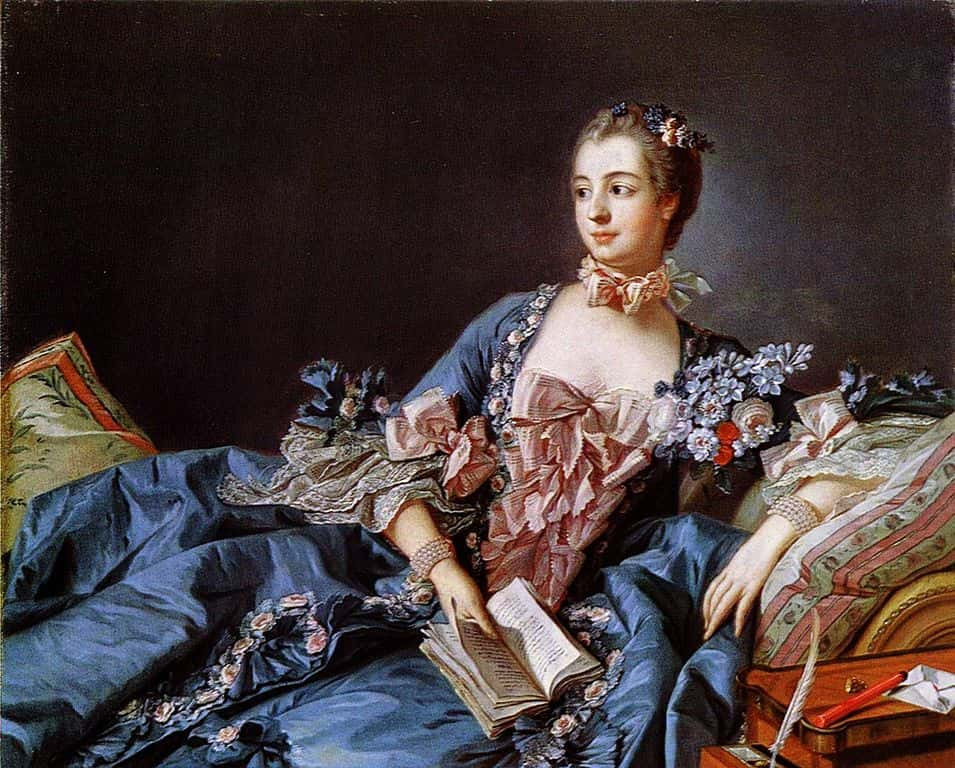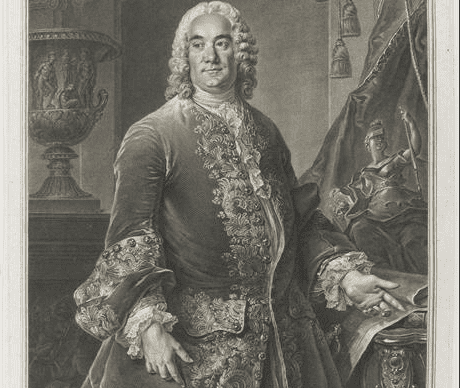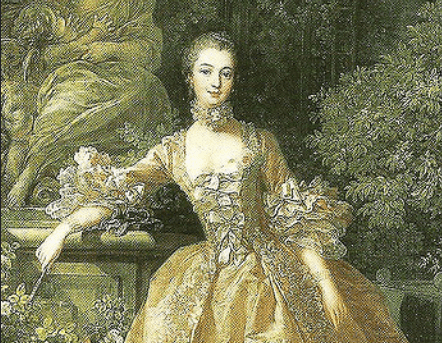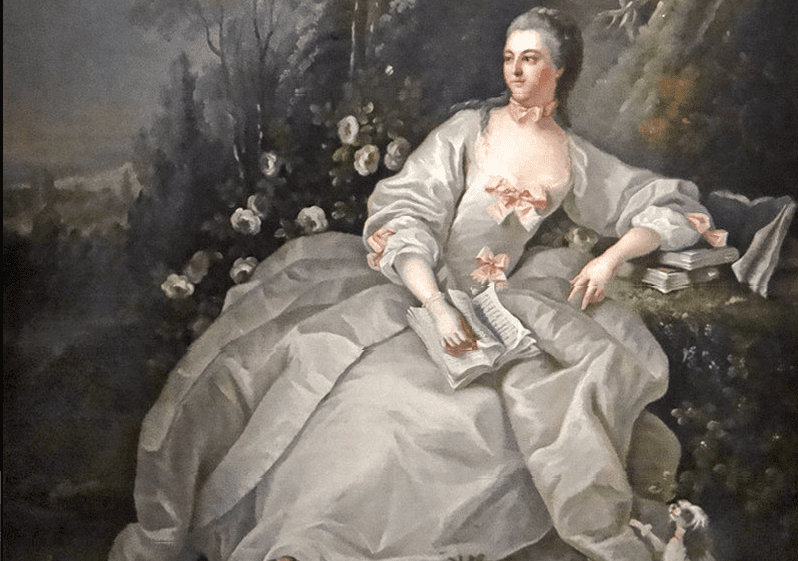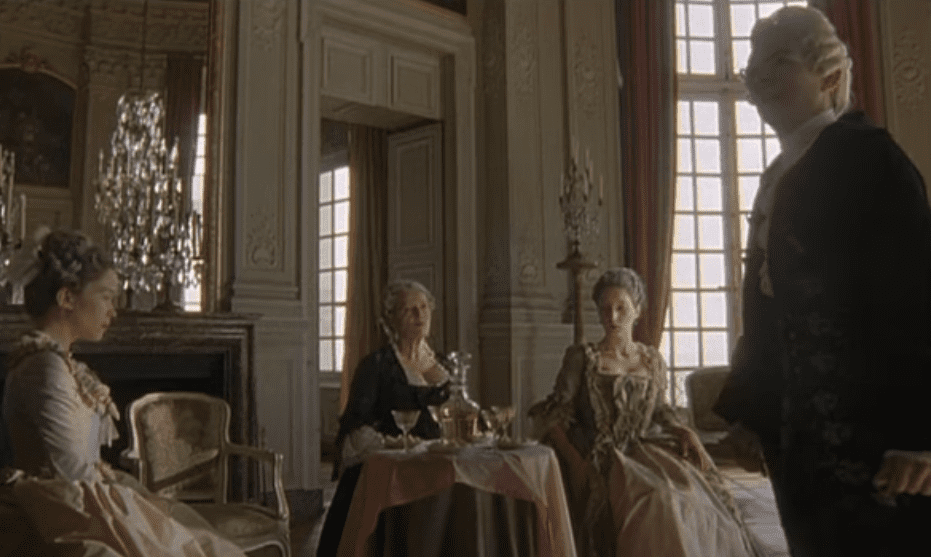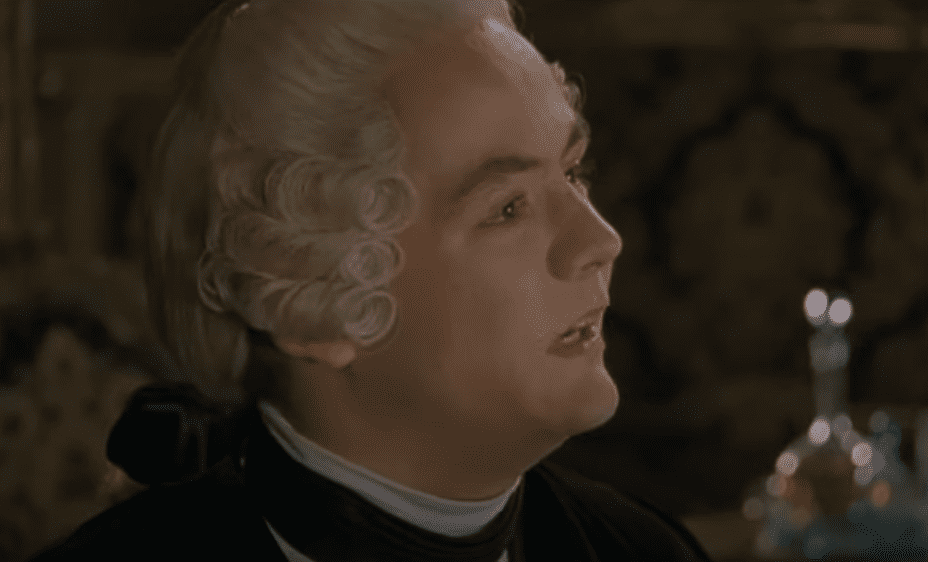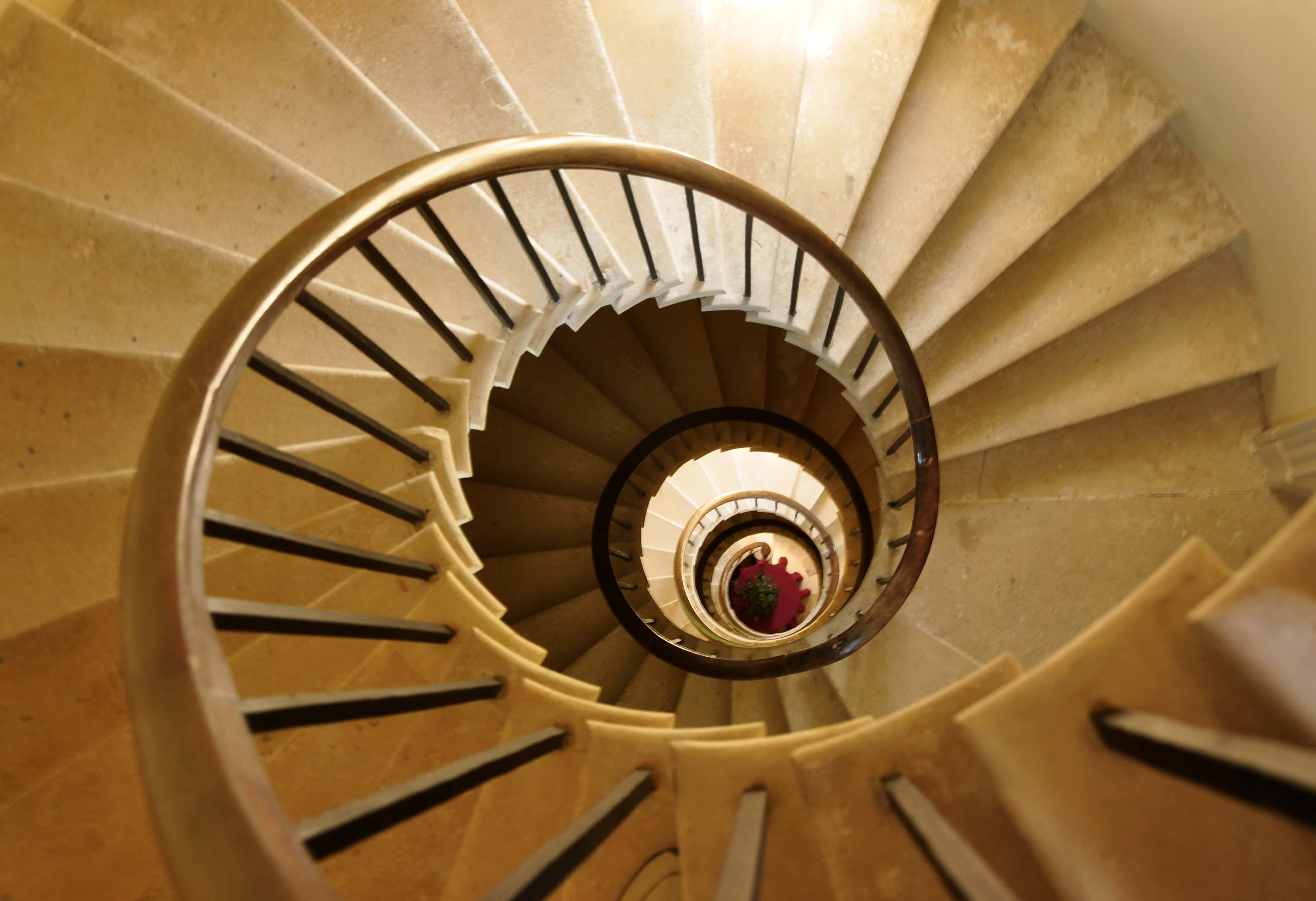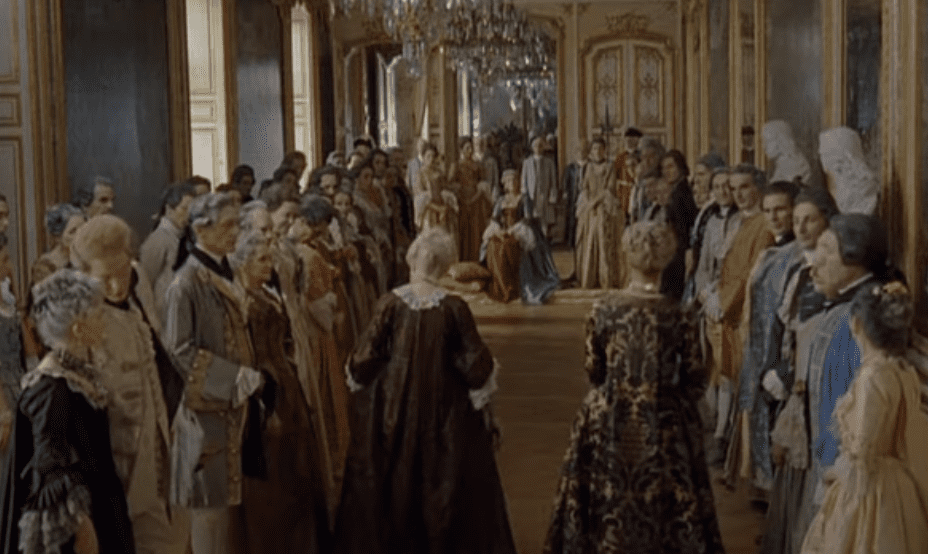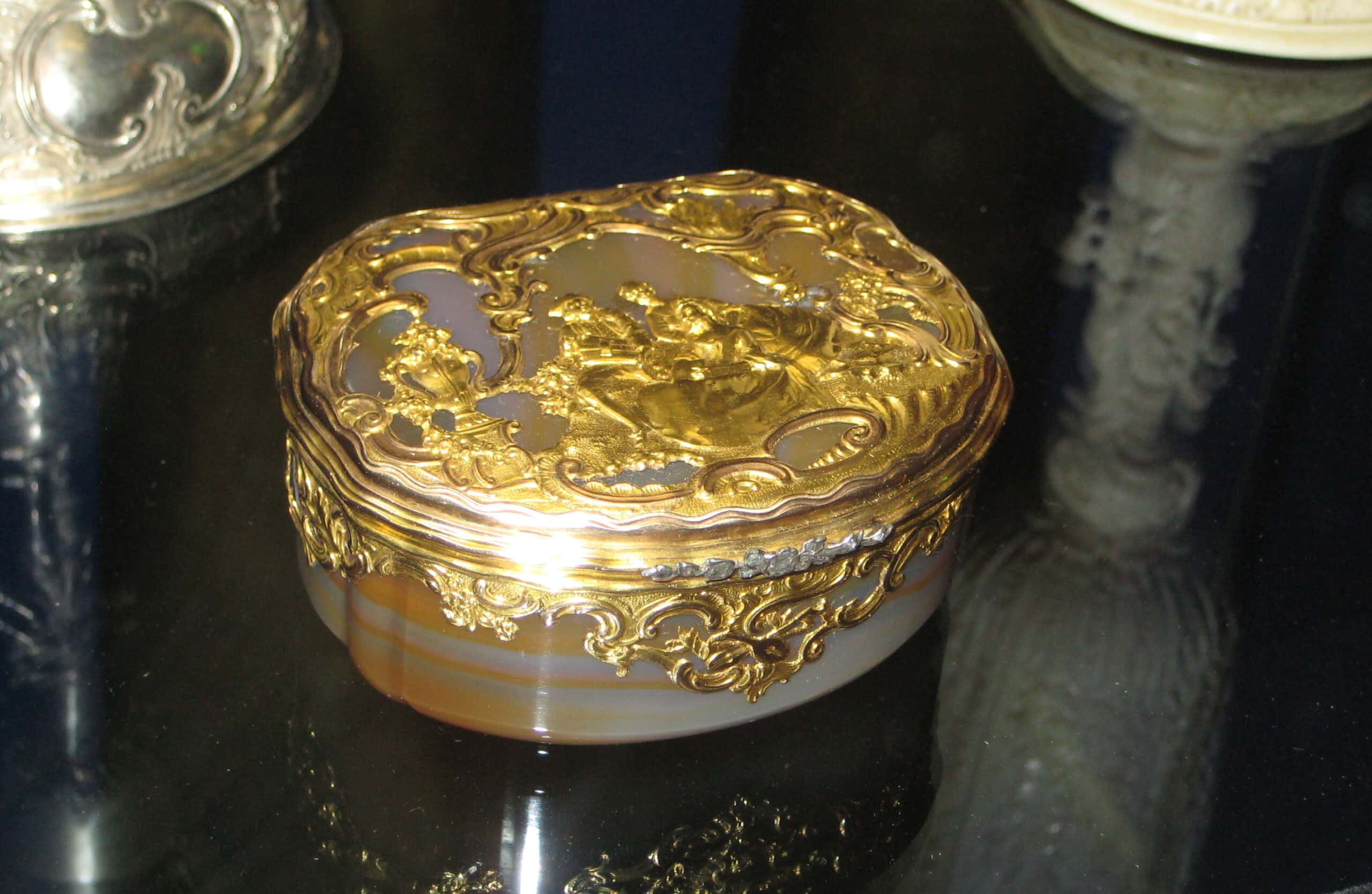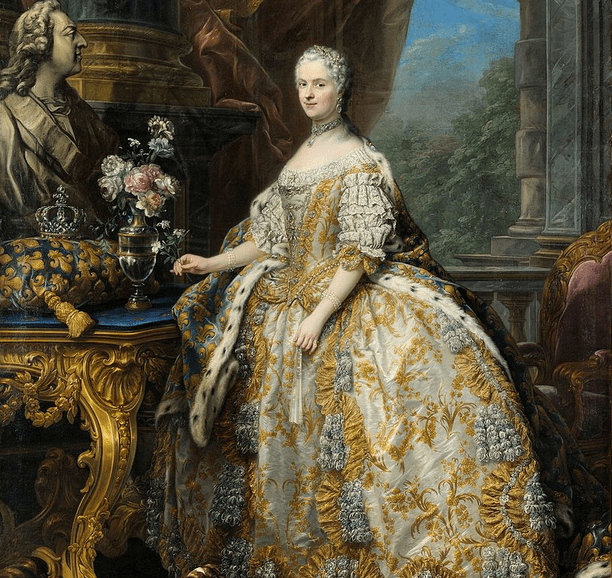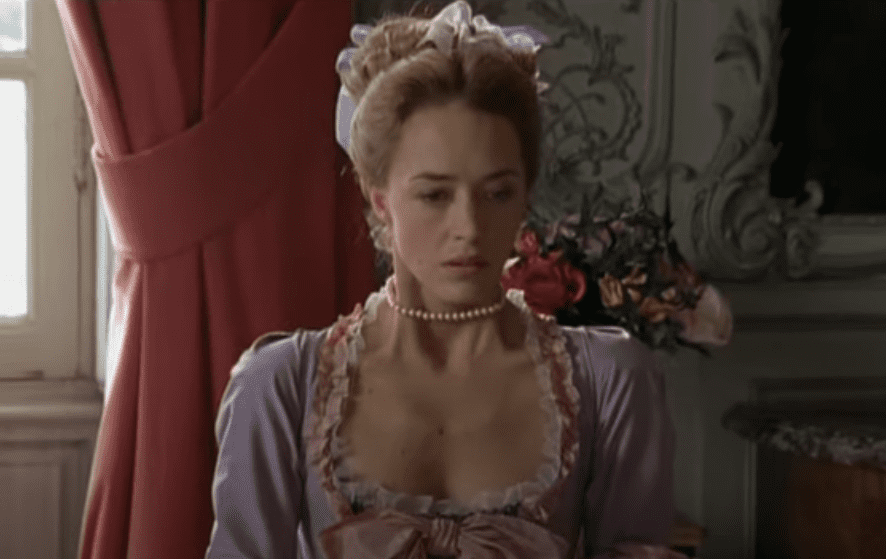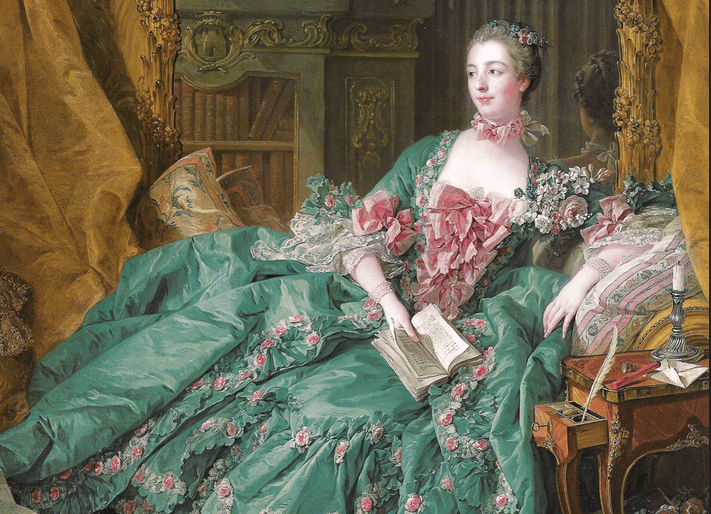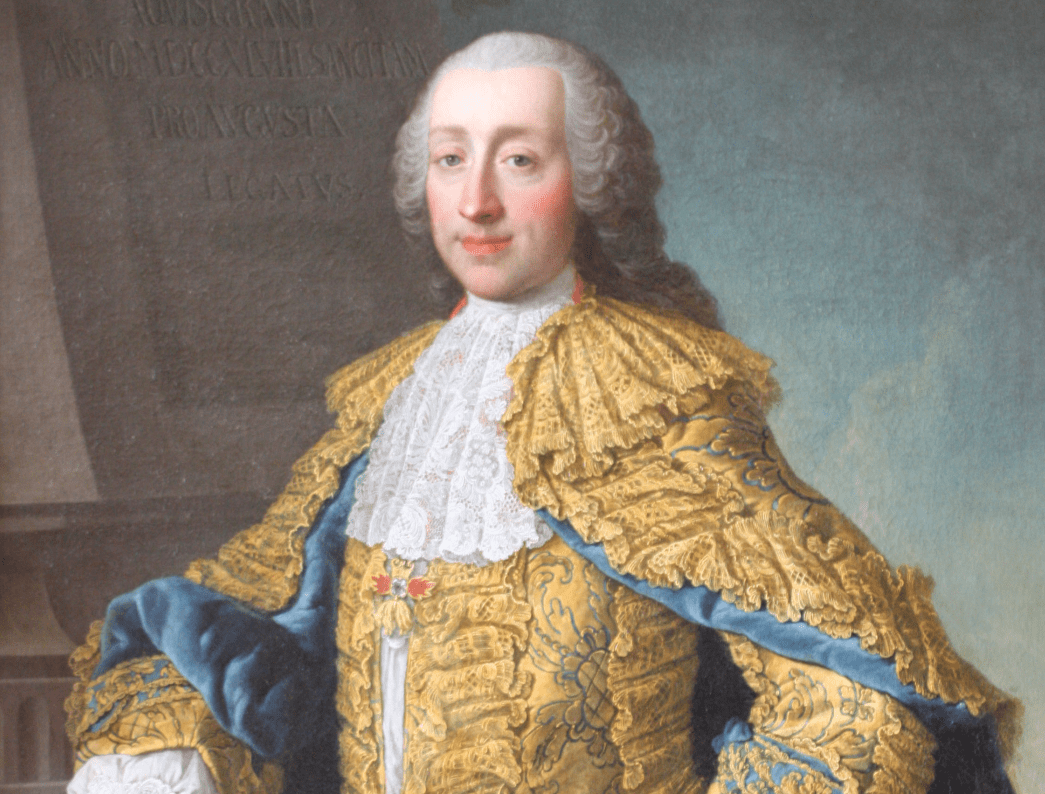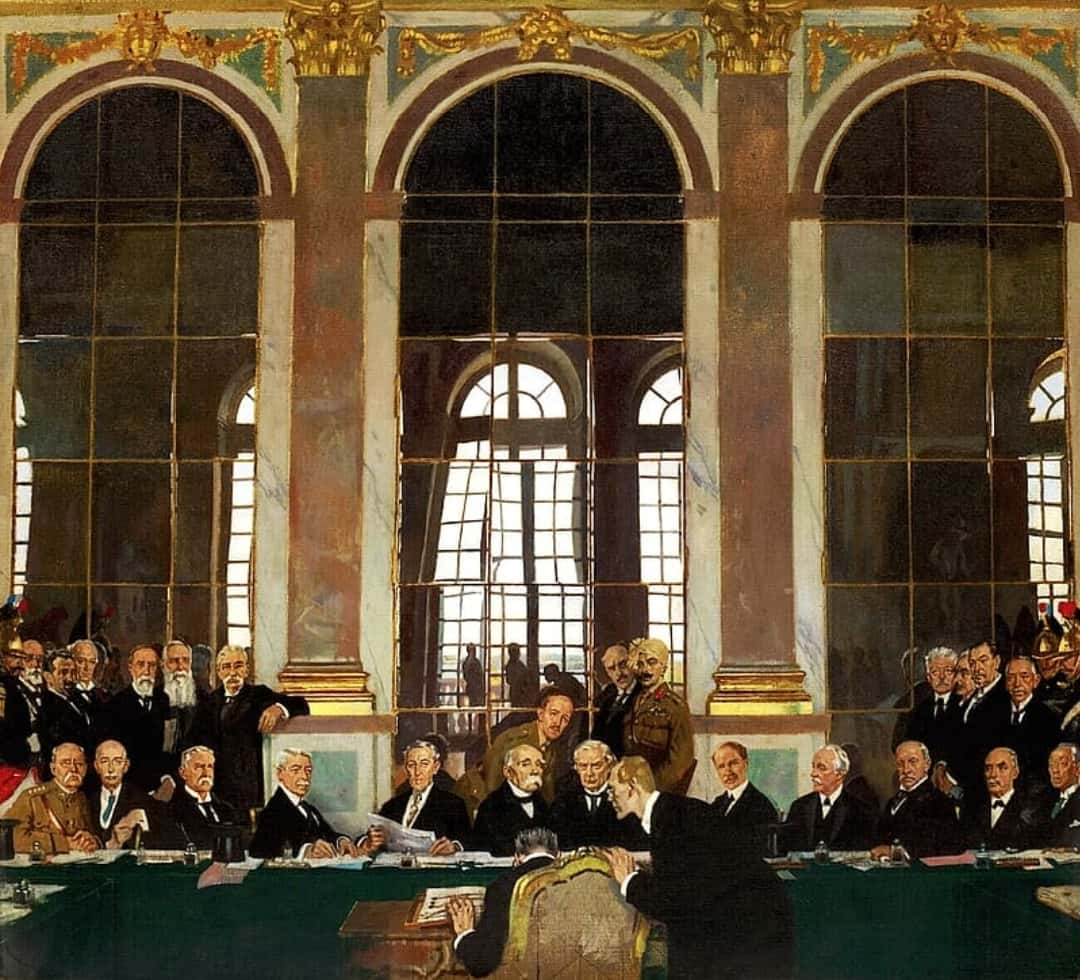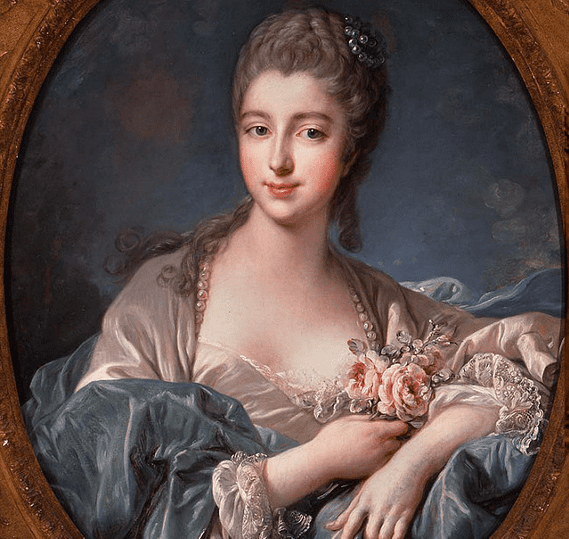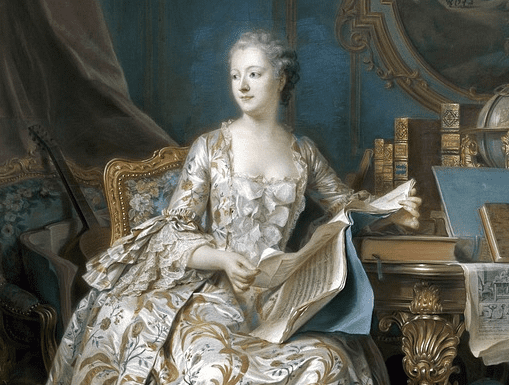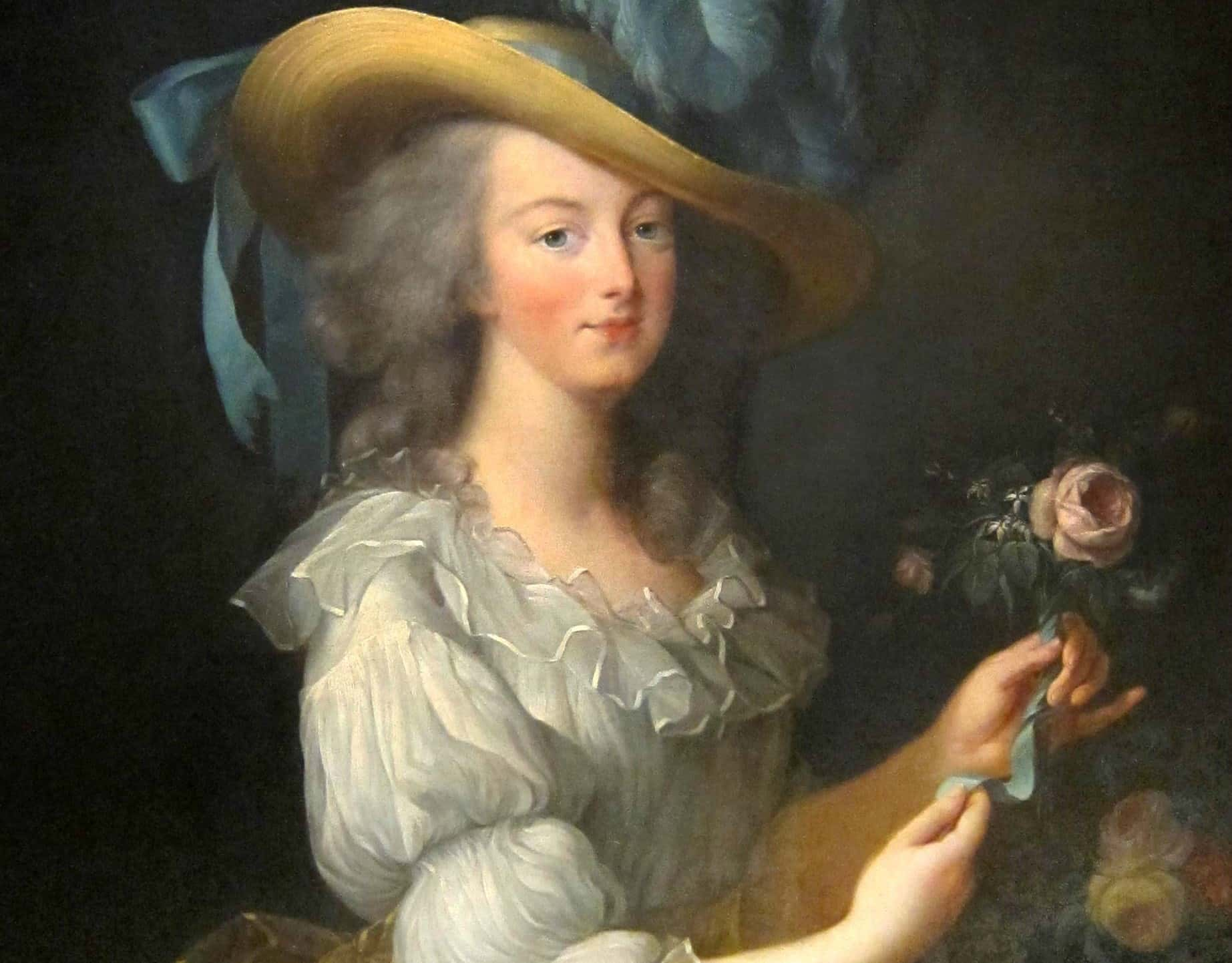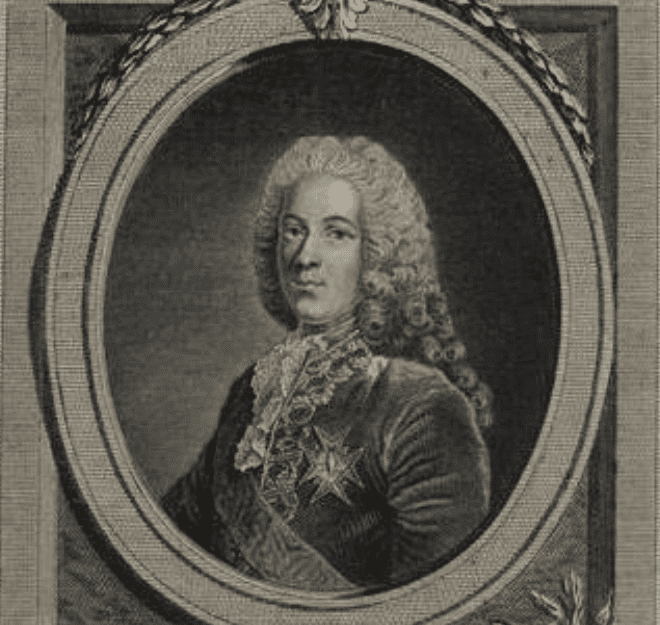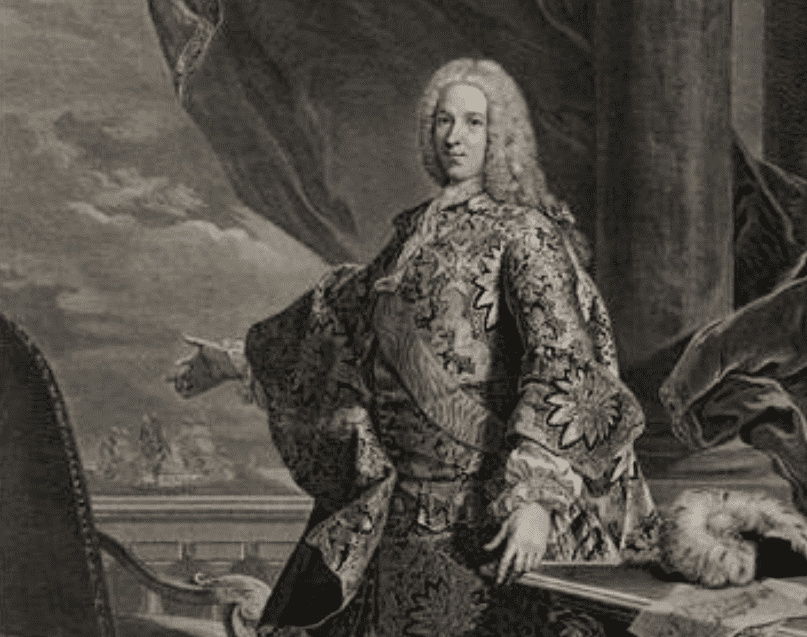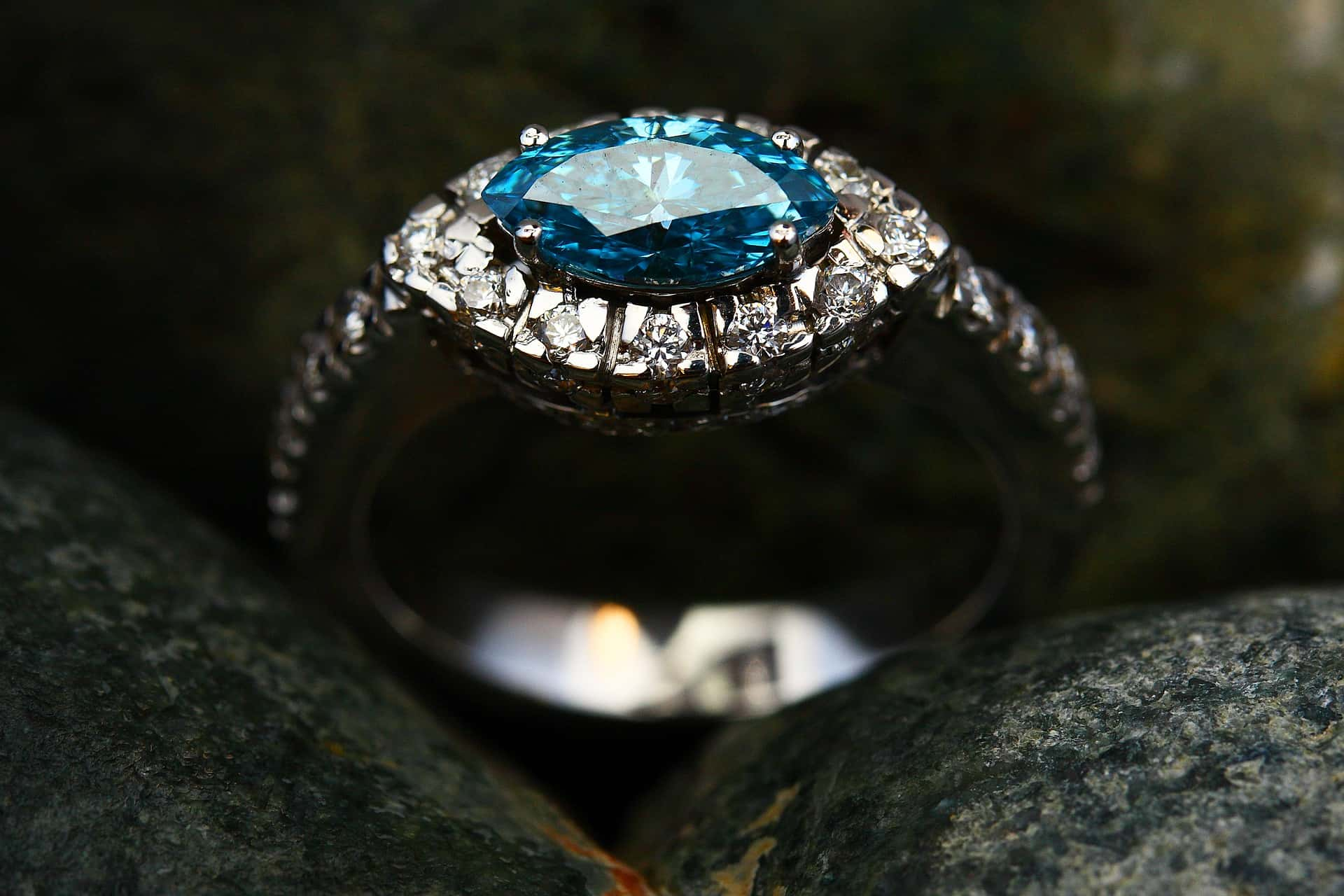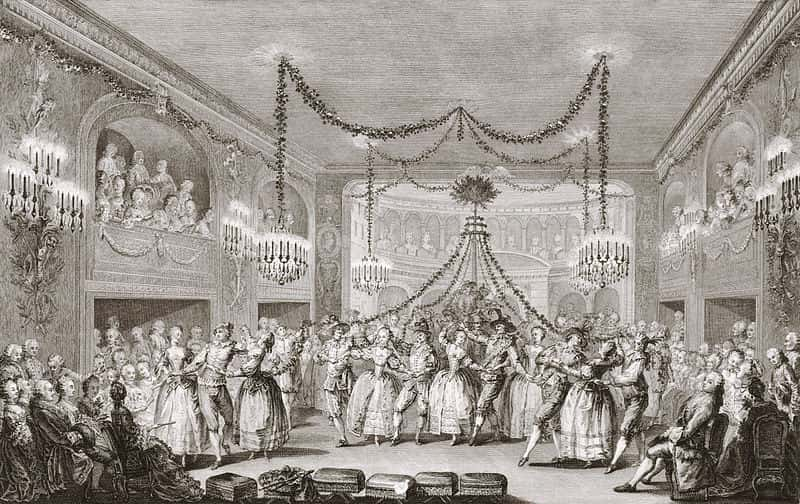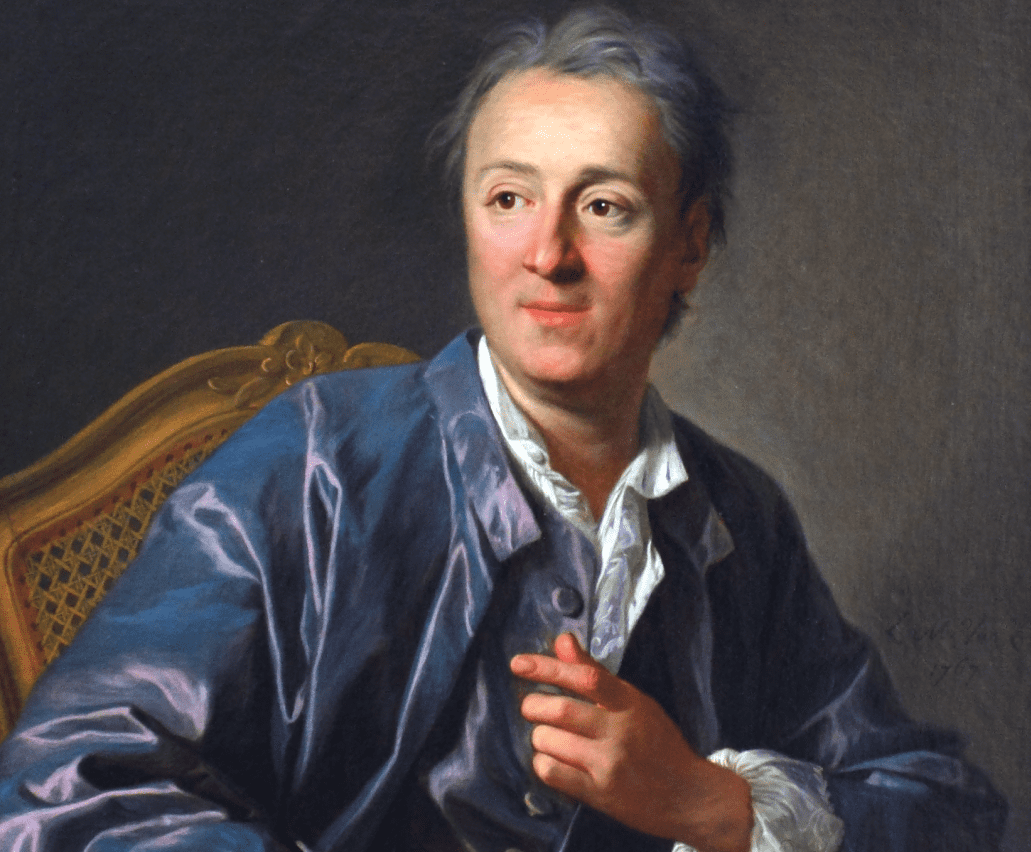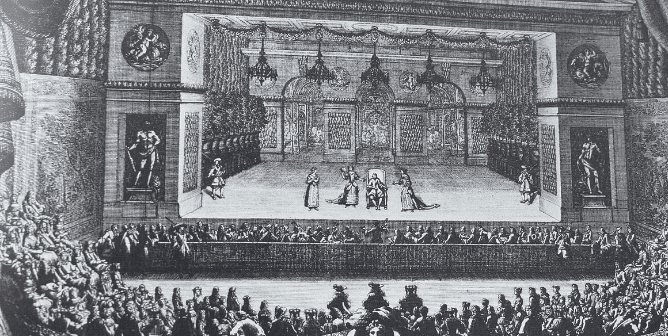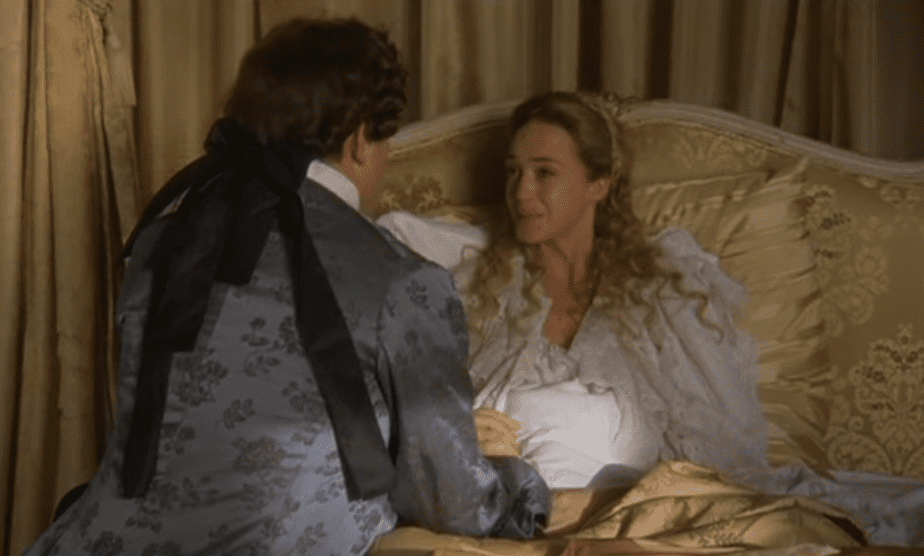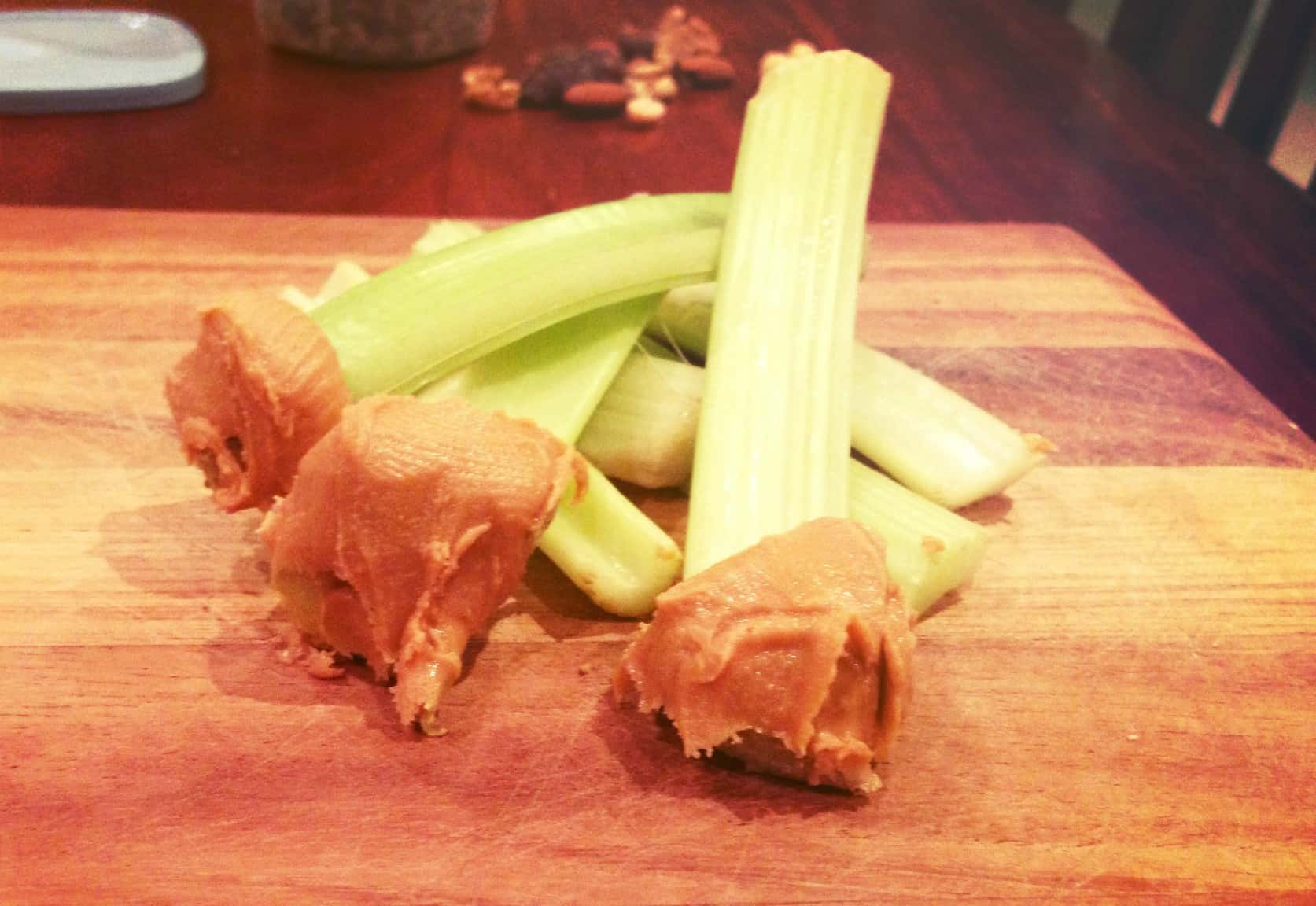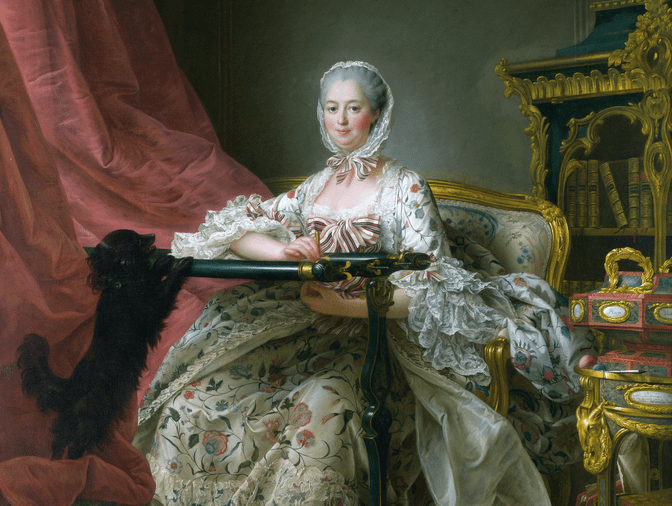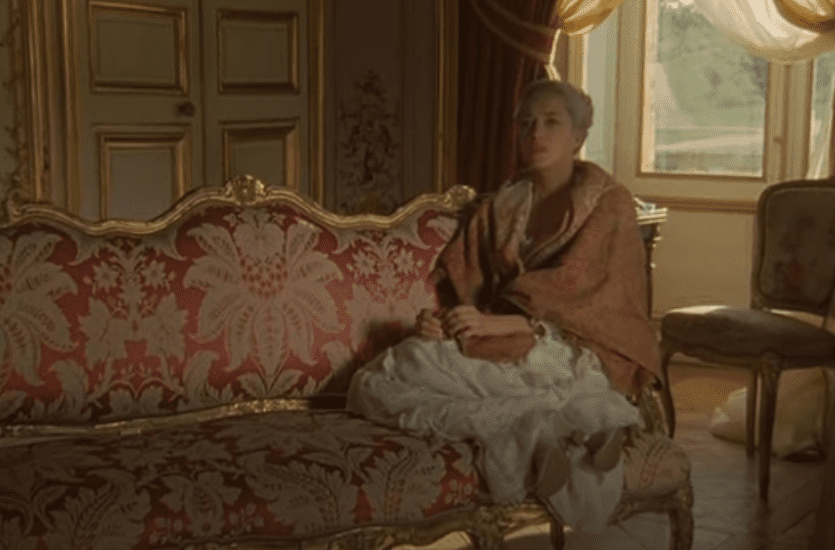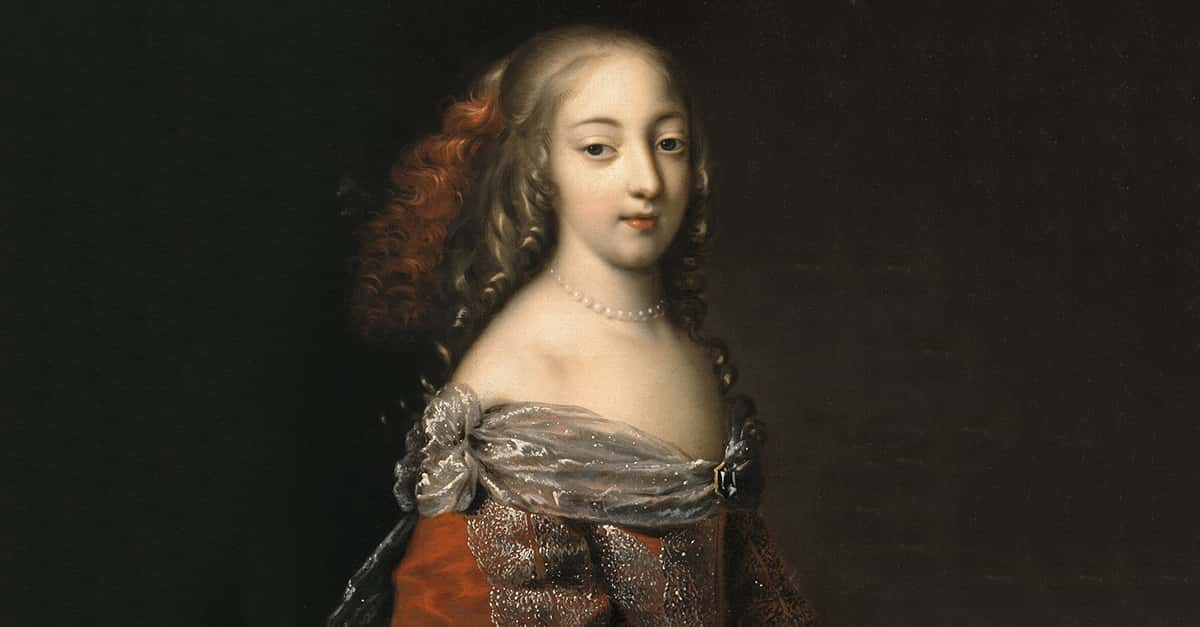France's Most Powerful Mistress
Madame de Pompadour didn't just share King Louis XV's bed, she also shared his power. As the most commanding mistress in the French court, she bettered the lives of many and became a beloved figure in European history and pop culture. But what do we really know about this fascinating woman? How did she gain the eye of the king? More importantly, how did she keep it? This is the entrancing tale of Madame de Pompadour.
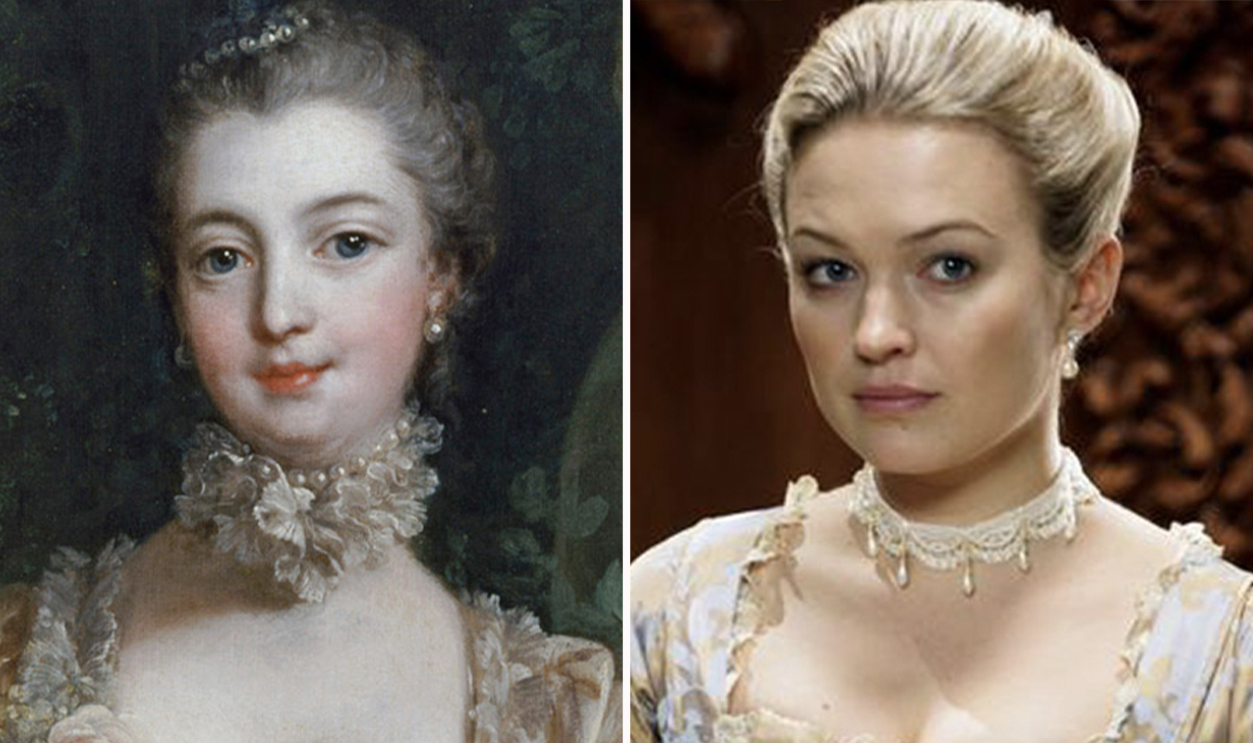
1. She was Destined to Make History
The woman who would become Madame de Pompadour entered the world as little Jeanne Antoinette Poisson. Born on December 29, 1721, she began life as a regular girl—but fate had other plans in store. When Pompadour was young, her mother took her to a fortune teller. The seer allegedly foretold that Pompadour “would one day reign over the heart of a king.” Pompadour would fulfill that prophecy, but her path to the top would be anything but smooth.
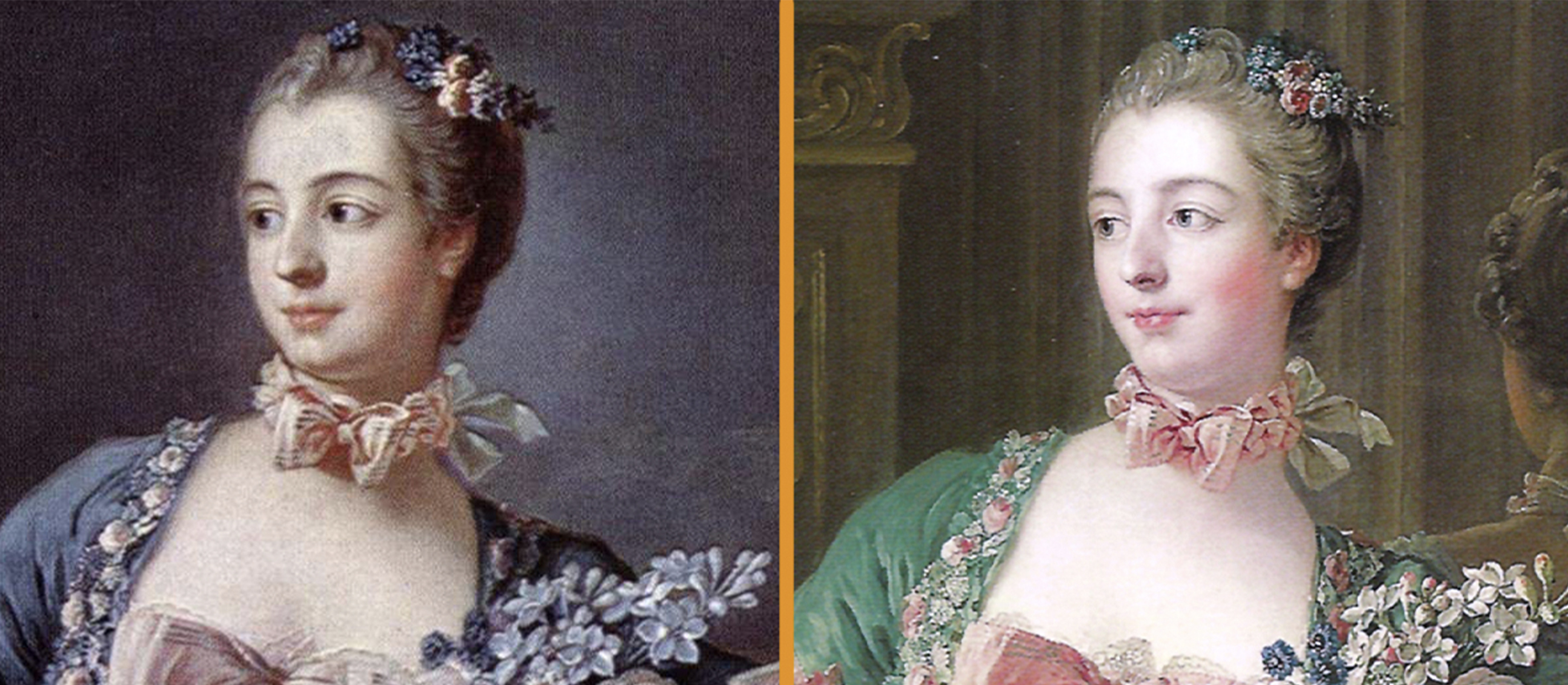
2. Her Father was a Crook
A terrible scandal emerged when Pompadour was only a young girl. It turned out that her father, Francois Poisson, was deeply in debt. Desperate, the doomed financier went into exile in 1725 and couldn't come home until the charges were cleared eight long years later. Frankly, though, he should’ve counted himself lucky. At the time, failure to pay debts carried the death penalty.
3. Her Legacy is Scandalous
Madame de Pompadour's amorous legacy is alive and well even to this day. According to one long-standing legend, Louis XV based the shape of the French champagne glass, also known as the coupe, on a scandalous part of his mistress. He apparently modelled the decadent glass on the size and shape of his mistress' bosom.
4. She Earned an Ominous Nickname
When Jeannette Poisson was young, she gained a suggestive nickname that would stay with her for the rest of her eventful life: Reinette, which means “little queen.” For anyone else, this moniker would be a coy joke, but not Madame de Pompadour. As we'll see, she would hold incredible power in the French court, effectively reigning even if she didn't have a crown.
5. She was a Beauty
How did Pompadour catch the French king's eye? The answer is simple: She was beautiful. Pompadour had a stunning figure, and her face was even more eye-catching. Her blonde hair, blue eyes, alabaster skin, and rosy cheeks immediately entranced King Louis XV. But the way that she kept his interest for twenty long years? That involved far more than just a pretty face.
6. But She Also Had Brains
Pompadour was also whip smart. The future mistress received the best education a young girl could get at an Ursuline convent, with even the philosopher Voltaire admitting that he was impressed by how much she'd read. However, young Pompadour's training wouldn't last for long. Four years after her arrival, she caught such a dangerous bout of whooping cough that she had no choice but to go back home, where her mother's disturbing plan kicked into gear.
7. She had a Wealthy Benefactor
When little Pompadour became ill and rushed home to recover, a mysterious man stepped in to help the young girl: the handsome tax collector Le Normant de Tournehem. After Pompadour’s father was exiled from the country, it was Tournehem who became her legal guardian. He also hired expensive tutors to educate Pompadour at home. But some say he didn't do so just out of the goodness of his heart...
8. Dark Rumors Swirled About Her
Because of Le Normant de Tournehem’s devotion and care for Pompadour, a dark rumor emerged. According to the gossip on the streets of France, Le Normant wasn't just a family friend. He was actually Pompadour's biological father. While this claim could very well be idle speculation or even slander against Pompadour, it would explain Le Normant's strangely generous treatment of the young girl...

History's most fascinating stories and darkest secrets, delivered to your inbox daily.
9. Her Birth was Mysterious
Apparently, Madame de Pompadour's mom got around. It turns out that the little girl didn't have just two contenders for her biological father. She had three. Pompadour's godfather Jean Pâris may have also gotten it on with Mrs. Poisson and been Pompadour's actual dad.
10. Her Husband was Loaded
When Pompadour was 19 years old, her guardian and possibly her secret father, Le Normant de Tournehem, came to her with a proposition. When it came time for Pompadour to wed, he had just the man in mind: His nephew, the handsome financier Charles Guillaume Le Normant d’Etiolles. The young couple was perfect on paper, but in practice, things wouldn't be so rosy...
11. She Aimed High
Apparently, Charles was absolutely besotted with his new bride. For a time, Pompadour returned his passion. From the get go, she said she'd never leave her husband...except for one man: the King. Poor Charles probably thought his wife was daydreaming. But in a few years, he'd learn not to doubt Pompadour when she put her mind to something, no matter how grand.
12. Her Mother was Callous
Here's the thing: Pompadour wasn't crazy for setting her sights on the king. Ever since little Jeanne Poisson came home from the convent, her mother had transformed from caregiver into a dicey blend of pimp and momager. She began to train her daughter for one purpose and one purpose alone: to be the king’s ideal mistress. Tournehem called her “a morsel fit for a king.”
13. Drama Followed Her Wherever She Went
Charles and Pompadour's marriage was controversial from the very beginning. Charles' uncle and Pompadour's guardian/secret dad, Le Normant de Tournehem sweetened the deal by making Charles his sole heir. Pompadour wouldn't just marry anyone; she'd marry a loaded young man. But in order to do so, Le Normant ruthlessly removed all his other nieces and nephews from his will. You can bet that didn't go down well in the Tourneham family.
14. She Rose to the Top
Pompadour was a bright child, but her reputation for being a witty woman didn’t truly emerge until she became a regular member of French salons. These were the social hubs of the day and they allowed the future mistress to discuss philosophy and, of course, pick up the day's hot gossip. In time, Pompadour rose to the top of the salons, despite her lowborn roots. She hosted an esteemed salon at Etiolles, her husband's family's estate, where she chatted with figures like the philosopher Voltaire.
But even though Pompadour's social life was flourishing, her personal life was a relentless tragedy.
15. She Endured the Worst
Pompadour and her husband, Charles Guillaume, had a brutal marriage almost from the get go. They had two children together, but tragically, both of them passed on while they were still very young. Their little son passed on just a year after his birth and their daughter, Alexandrine Le Normant D’Etiolles, succumbed to a stomach illness in 1755. She was nine years old.
16. She was Determined to Ensnare the King
Pompadour first tried to get the attention of her future beau King Louis XV with a show-stopping gesture. In 1744, the king went on a hunting expedition at Pompadour's estate, allowing her to follow his entourage from a distance. But holding back didn't satisfy a girl like Pompadour. She purposefully rode in the king’s path several times and to make doubly sure that he couldn’t miss her, she wore differently colored outfits each time. Subtle!
17. She had Competition for Louis' Heart
No one becomes the king's chief mistress overnight, and Madame de Pompadour learned this the hard way. In 1744, the main obstacle blocking her from King Louis XV’s bed was a rival named Madame de Chateauroux, who was already the apple of Louis' eye. Naturally, she tried to prevent Louis from getting too close to Pompadour. But the rivalry between Pompadour and Chateauroux ended in an utterly brutal fashion.
18. Her Rival Met a Brutal End
In December of 1744, Madame de Chateauroux entered Versailles and began to emit blood-curdling screams. She fell to her knees and convulsed because the pain in her stomach was so intense. It didn't take long for the king's mistress to die. To this day, no one knows what caused Chateuroux's demise, but she went to the grave insisting on a dark explanation: She firmly believed that she had been poisoned.
19. One Paper Changed her Life
In 1745, one piece of paper would change Pompadour's life forever. She received an invitation to a masked ball at the Palace of Versailles, proving that her overt flirting at the king's hunt had worked its magic. The ball celebrated the wedding of the Dauphin Louis to Maria Teresa of Spain, but for Louis, the main event was Madame de Pompadour.
In an effort to stay away from prying eyes, the king and several courtiers dressed in identical yew tree costumes so that Louis could walk around without being bothered. But his clever costume had nothing on Pompadour's...
20. She Always Got her Way
Pompadour attended the masked ball in a saucy costume. She dressed as Diana, the Roman goddess of the hunt, referencing how she’d first pursued the king on his hunting trip. We can assume that Louis appreciated her suggestive clothing. At the ball, he unmasked himself to her and publicly declared his affection for Madame de Pompadour.
21. She Made a Scandalous Move
Pompadour became the king’s official mistress by March of 1745, when she took up her abode in the Palace of Versailles. Her apartment was right above the king’s own chambers, in case anyone was confused by her reasons for being there.
22. Her Step-Kids Hated Her
King Louis XV's kids were not thrilled that Pompadour had moved into the palace and they weren't shy about who knew it. They called her, and I quote, “Mommy Wh*re.”
23. Her Spouse was Ticked
Pompadour was thrilled that she'd become the king's mistress. However, her husband, Charles Guillaume le Normant, didn't feel the same. He adored his bride and was deeply upset that she'd set her sights on another. Apparently, when he heard that she was planning to leave him, he fell to the ground in shock. Charles thought things couldn't get worse, but he was wrong.
24. Everyone Betrayed Him
Another ugly betrayal quickly reared its head. As though his wife dumping him wasn't bad enough, Charles' own family wasn't exactly sympathetic to his heartbreak. In fact, Charles' father approved of Pompadour’s social climbing! He even gave his cheating daughter-in-law his personal blessing to leave Charles and pursue the King. Ouch...
25. She Endured a Bitter Parting
Charles stayed furious at Pompadour's betrayal for years. He never forgave her for preferring the French king, and he made sure everyone knew it. When King Louis XV offered Charles a prestigious position as the French Ambassador to Turkey, Charles stunned everyone by refusing the appointment. He interpreted the offer not as an olive branch but a convenient way to get him away from France, so that Pompadour and Louis could enjoy their affair without his lurking presence.
26. Her Ex was Furious
When Charles refused to give up his wife, King Louis started playing dirty. He set up a legalized separation so that his new mistress could officially leave her unwilling husband. But don't feel too bad for Charles. When he nursed his wounds, he imitated his enemy, the King, by enjoying several affairs. In time, he got the happy ending he wanted when he settled down with a famous dancer.
This is where Charles drops out of history...and where Pompadour's story kicks into high gear.
27. Her Private Matters Made Their Way Into the Public
From 1755 to 1881, the British Army had a regiment called the 56th Regiment of Foot, also known as the West Essex. Their purple uniforms gained them the nickname the “Pompadours” apparently because it had been her favorite color. But apparently, there's a hidden meaning to the hue: It wasn't just Pompadour's favorite color, it was the color of her undergarments.
28. The King was Obsessed with her
When Madame de Pompadour moved into Versailles, she lived in a room directly above King Louis XV, but apparently, even that wasn't close enough for the king. He made sure that their rooms were connected by a secret winding staircase so that he could covertly visit Pompadour whenever he liked. However, the "secret" staircase didn't stay secret for long.
29. Rivals Insulted Her
In the French court, jealous courtiers coined a cruel phrase to insult Pompadour. They whispered that the king "only loves her for her staircase"...also known as her bedroom-based charms.
30. She Could Charm Anyone...And I Mean Anyone
You’re probably thinking about how awkward and tumultuous Pompadour’s relationship with Louis XV’s wife, Queen Marie, must’ve been. However, their relationship was completely cordial, if the accounts are to be believed. But the reason for their cooperation isn't so prim and proper: Pompadour made sure to suck up to her competition and went to disturbing lengths to make nice with the queen.
31. She Could be Deceitful
Pompadour won over her rival with a series of risky actions. She demanded that the king pay off his wife’s significant gambling debts. With that done, she made Louis give his wife's apartments a stylish renovation. But her last gesture was the most dangerous. Pompadour gave the queen a golden snuffbox that Louis had originally given to Pompadour. Apparently, the queen didn't realize she'd been re-gifted as Marie reportedly quipped, "If there must be a mistress, better her than any other."
32. She Got an Awkward Promotion
At the height of Pompadour’s influence, she served as a lady-in-waiting to Queen Marie. While working for your lover's wife would have been a nightmare for anyone else, Pompadour managed to get the most of the awkward situation. The appointment gave her extreme power, and Pompadour wasn't afraid to use it. One historian said that Pompadour had so much sway that she was France's de facto "prime minister."
33. She Had Expensive Taste
Madame de Pompadour got used to the fancy life pretty quickly. Her favorite foods were chocolate, champagne, and truffle soup.
34. Her Lover had a Dark Side
On the surface, King Louis XV seemed like a total catch. But lurking beneath the handsome facade lay a truly disturbed man. The King was prone to intense melancholy and depressive moods. One of the few ways he could find solace was in his mistress Madame de Pompadour. She could always help him through his bad days and cheer him up. It sounds like the king and Pompadour had a great relationship, but court gossip insisted otherwise.
35. She was into Role Play
Rich people have always done crazy stuff, and here's proof: One of the ways that Louis and Pompadour would relax was by visiting their numerous little chalets and pretending to be poor. For real. The couple would travel to one of their many countryside estates, go hunting, walk around nature, and live the simple life. Of course, once inside their humble abode, all the "rustic" jugs and bowls were actually made of incredibly expensive materials.
36. She Got Her Way
Jeanne Poisson received her now famous name Madame de Pompadour as a gift from her sugar daddy, King Louis XV. Since Ms. Poisson wasn't born a noblewoman, the king gave her the next best thing: He bought her a noble title. In June 1745, she became the Marquise of the estate called Pompadour. But even that wasn't enough. Pompadour had so much sway over the king that she got him to give her brother a noble title too.
However, Pompadour's enemies weren't as enamoured with her as the French king.
37. Her Enemies Spread Rumors
Rival courtiers interpreted Louis' love for his mistress not as genuine affection, but as weakness. They thought that Pompadour was a power-hungry woman who manipulated the weakened king and used his melancholy moods to gain power. To be fair, they weren't completely wrong. As we'll see, Pompadour held a lot of power and influence in her beau's court...
38. The Public Hated Her
In 1750, the public began to pressure King Louis XV to clean up his act, get rid of his mistresses, and live as a good Christian ruler. For Pompadour, this was as good as a death sentence. If the people wanted her gone, she'd be out of the streets. Luckily, Pompadour wasn't just pretty, she was smart too. She immediately rebranded, pitching herself as "the friend of the king" with an elaborate gesture. She commissioned two wildly expensive sculptures of...herself. It's safe to say the people weren't thrilled.
39. She was a Top Tier Schemer
Even when the public demanded that Pompadour get the heck out of Versailles, she managed to swing a deal in her favor. She agreed to live in another set of apartments to appease the court. She just didn't mention one little detail: Pompadour's new digs were even fancier and more expensive than her old place. Honestly, I should be mad, but I'm just impressed.
40. She and the King Endured Tragedies
Amid all Madame de Pompadour's missteps, she and the king really did share a deep connection. But sadly, there was one thing they're never share: a child. Pompadour was plagued by ill health and even though she became pregnant multiple times, all of her pregnancies ended in the same tragic way. She miscarried her and the king's child every single time.
41. Her Actions Made Waves
Such was Pompadour’s influence in Louis XV’s court that foreign diplomats often asked for her help with political negotiations. The esteemed diplomat Wenzel Anton Graf Kaunitz requested Pompadour’s assistance with the seminal 1756 Treaty of Versailles. Pompadour knew this was a crucial moment for her budding political prowess, but she had no idea that her actions would have utterly disastrous consequences.
42. She Doomed Her Country
The Treaty of Versailles made waves in 18th century Europe and one of its biggest developments was turning the former enemies of France and Austria into allies. This alliance was the reason that France entered the brutal Seven Years’ War. This massive global conflict began just months after the treaty was signed, and unfortunately for Pompadour, it could not have gone worse.
43. Her Enemies were Vicious
After seven years of fighting, the war ended but France had no reason to celebrate. The country had lost brutally, giving up their claim to territory in what is now the United States. Pompadour’s enemies immediately pounced on the opportunity to malign her. They didn't blame the king for France's embarrassing defeat, but his close advisor, Madame de Pompadour. But that's not the full story...
44. They Hid the True Story
The irony is that while Pompadour's responsibility for France’s defeat was indirect at best, it is historical fact that Pompadour supported a number of important ministers such as Bertin and Machaut. These ministers would implement reforms to France’s infrastructure, trade, and taxes which would eventually lead to France becoming “the richest nation in the world.”
45. She Made a Dark Prophecy
Even so, there is a dark detail about Pompadour's involvement in the War and it involves a now-famous quotation. Pompadour said “after us, the flood” to comfort her love, King Louis, after France’s terrible defeat at the Battle of Rossbach in 1757. But what did she mean? Pompadour either meant that whatever happens after Louis doesn't matter, or far more darkly, that everything will collapse after his reign.
46. She was a Trend Setter
Pompadour began a controversial trend. Almost daring people to bring up her bourgeois background, she'd dress up in a milkmaid's attire and pretend to be a peasant. The trend was so influential that even Marie Antoinette kept the fad going. She commissioned golden milk churns for her poor person cosplay...you know, because nothing makes you think of French peasantry more than solid gold.
47. She was Vain
As a patron of the arts, it made sense for Madame de Pompadour to cover the walls of her boudoir with expensive custom paintings. What raised more eyebrows was the paintings' shared content: Many of them featured glamorous depictions of Pompadour and not only that, many showed her dressed up as an actual goddess. She, uh, clearly didn't have issues with self-confidence.
48. She was the Most Hated Woman in France
Because of Pompadour's disastrous involvement with the Seven Years War, she became the most hated woman in France. Angry courtiers even campaigned to make the king kick her out. But such was Pompadour's power over the ruler: The whole country could demand that he cut his mistress loose and he still wouldn't budge. Pompadour stayed at the palace.
49. She Played it Cool
Louis was not a one-woman man. During his affair with Pompadour, he sated his physical desires on the side with casual sojourns in his “Parc-aux-Cerfs” or “Stag Park," a building specifically for the king's affairs. Rumors swirled that Pompadour was the mastermind behind the king's debauched palace, gleefully setting up her lover with a harem of women. In reality, Pompadour just accepted the king's side pieces. Later on, she revealed the chilling reason for her acquiescence...
50. She Wasn't Afraid of Competition
Pompadour told one of her friends that Louis' side dalliances didn't bother her because, “It is his heart I want! All these little girls with no education will not take it from me. I would not be so calm if I saw some pretty woman of the court or the capital trying to conquer it." But as we'll see, there were far more reasons for her to be so relaxed about Louis' side pieces.
51. She Got Into a Brutal Public Spat
Madame de Pompadour's shameless quest to get to the top of the French court didn't always make her the most popular person in the room, but when she got on the wrong side of the Comte de Maurepas, she learned to regret it. He wrote an utterly vicious poem about Pompadour where he made fun of her...for her recent miscarriage. And as though that's not bad enough, some historians believe the poem had an even crueller meaning.
52. Her Rival Was Intense
In Maurepas' infamous poem, he refers to Pompadour's "white flowers." It sounds innocent, but nothing could be further from the truth. Everyone at the court knew Maurepas' scandalous double meaning: He alleged that Pompadour's nether regions produces a thick, odorous discharge. But it gets even worse: Apparently, this wasn't just a cruel jibe. It might have been true. Scholars believe that Pompadour may have had "leucorrhoea."
53. She Punished her Enemies
Pompadour was deeply offended by Maurepas' cruel poem and she used her significant power to make her enemy regret his words. She quickly got her lover King Louis to exile her enemy Maurepas. Pompadour: 1. Maurepas: 0.
54. She Made her Mark
Pompadour pops up in all sorts of places. Not only did her bosom form the shape of the French champagne glass, there's also a long-standing rumor that she influenced a famous engagement ring style. King Louis XV may have commissioned the “marquise cut” diamond as a scandalous homage to his beloved mistress. Apparently, its shape is based on Pompadour’s mouth.
55. She Secretly Controlled France
Pompadour made her mark on French history not just as a mistress and a sly politician but a tastemaker. She was an important patron of the arts whose commissions supported painters, writers, and porcelain artisans. Do you ever wonder how Paris got a reputation for being such a fancy, cultured place? Thank Madame de Pompadour. She played a huge role in making the city the "capital of taste and culture in Europe."
Not all her legacies would be so positive, though.
56. She Had Famous Haters
The French writer, critic, and philosopher Denis Diderot was not a fan of Madame de Pompadour. After her passing, he let the world know how he really felt about the king's great love. Diderot angrily wrote, “What remains of this woman who cost us so much in men and money, left us without honor and without energy, and who overthrew the whole political system of Europe?”
Here's where it gets even worse: Diderot had sucked up to Pompadour when she was alive so that she'd fund his Encyclopedia. But after her demise, the truth came out: Her so-called friend hated her guts.
57. Her Low Origins Haunted Her
The French court was full of backstabbing and in-fighting, and poor Madame de Pompadour had it worse than most people. High born courtiers constantly insulted her lowly background. Their jibes were so numerous that the nation had a specific term for attacks on Pompadour: These insults were called "poissonades" in a reference to her last name, the common "Poisson" aka "fish."
58. She Righted a Horrible Wrong
One of Madame de Pompadour's final acts was also one of her most noble. In 1762, a Catholic merchant named Jean Calas was accused of killing his son and despite the father's insistence that he was innocent, he perished after being brutally tormented by the French authorities. Pompadour's dear friend Voltaire told her about the miscarriage of justice, leading Pompadour to intervene. She got the king to overturn Calas' sentence.
Though, to be fair, she wasn't this nice to all religious minorities.
59. She Made Life Hard For Her People
Louis passed a bill that suppressed Jesuits, a rising Christian group. At the time, this issue was incredibly volatile. It divided not just France, but the royal family. Although Louis’s son, daughters, and wife supported the Jesuits, Madame de Pompadour did not. Louis ultimately sided with his mistress, and the Jesuits saw their rights greatly reduced because of her sway.
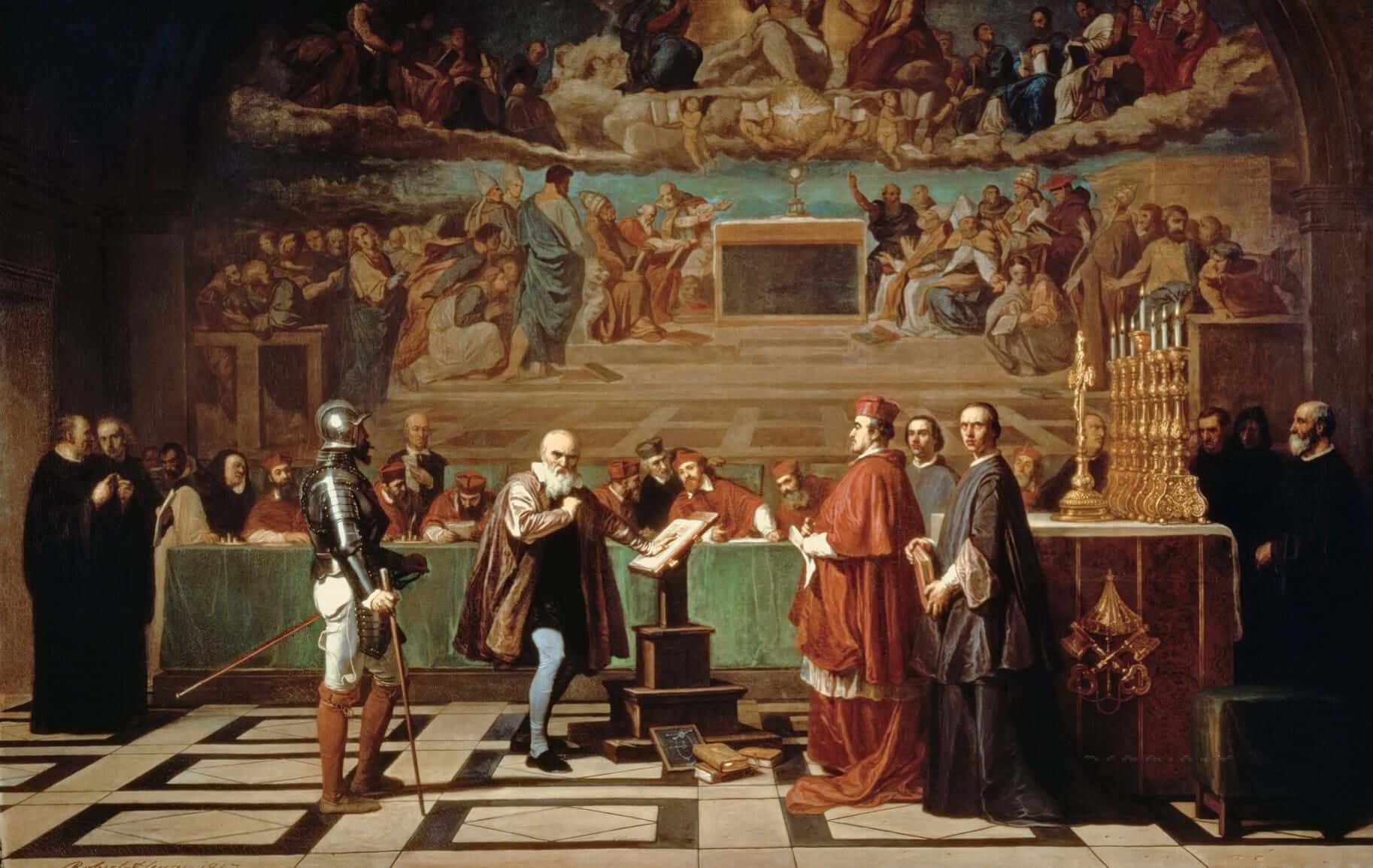 Pinterest
Pinterest
60. She Produced Raunchy Plays
Pompadour didn't just watch art from the sidelines, she took part in it herself. She learned to engrave gems from the craft's greatest artisan, with one of Pompadour's pieces displaying her little spaniel on a tiny gemstone. More scandalously, during her time as Louis XV’s mistress, she staged over a hundred plays at Versailles. Pompadour would often flatter Louis XV by acting as a coy peasant in love with a god AKA the King, and people would lose their minds to get a part in her productions.
61. She was a Style Icon
Madame de Pompadour became well known for her love of feminine designs and the rococo art style. Over time, her artistry became part of her identity so much that a shade of pink was called "Pompadour Pink."
62. Her Ending was Tragic
In 1764, Madame de Pompadour began to feel unwell. When the doctors examined her, they had terrible news: the king's great love had tuberculosis. Louis looked after Pompadour as best he could, but ultimately she succumbed to her illness and passed on at the place she loved more than anywhere else: Versailles. She was just 42 years old, but she had lived a hundred lives in her short time on Earth.
63. Her Loss was Felt
After Pompadour's demise, tributes poured in from all over France. King Louis XV described their bond not just as a passionate romance, but a "twenty year friendship." Pompadour's dear friend, the famous writer Voltaire, mourned her in writing. He referenced her great contribution to his career by saying, "I am indebted to her and I mourn her out of gratitude." Even the weather seemed to mourn her loss. It rained heavily on the day that Pompadour's coffin left the palace.
However, shortly after Pompadour's passing, the king betrayed his great love in two brutal ways.
64. Missing in Mourning
Although the king deeply grieved at Pompadour's passing, court protocol forbade him from attending her funeral. After all, Pompadour was still born as a Jeanne Poisson, a middle class woman. Because of this inconvenient fact, she was too low-ranking to deserve a royal funeral attendance, even if the King himself was her life partner.
65. He Didn't Mourn for Long
In 1762, Madame de Pompadour convinced Louis to construct the Petit Trianon, a luxurious mini château within Versailles that would serve as their love nest. Unfortunately, Pompadour passed on before construction could be finished. But don’t worry, it didn’t go to waste. The Petit Trianon went on to serve as home base to Pompadour’s successor in the royal bed, Madame du Barry.
66. She Inspired Many
One of the most long-lasting aspects of Pompadour’s legacy is the hairstyle that bears her name. The elaborate coif involves one’s hair being worn straight up from the forehead and sides. This hairstyle has endured for centuries after Pompadour’s passing and not just on her female fans! Men who have adopted the pompadour hairstyle in one form or another include Elvis Presley, Marlon Brando, David Beckham, and Justin Timberlake.
67. She Continues to Fascinate
In one of her more recent appearances in pop culture, Pompadour showed up as a character in the Doctor Who episode “The Girl in the Fireplace.” The episode follows the Doctor jumping in and out of Pompadour’s life in order to save her from a group of aliens. Pompadour is played by Sophia Myles, who bizarrely kept her British accent for the role.
Thanks to good writing—and an ending that we know made some of you cry—“The Girl in the Fireplace” won a Hugo Award for Best Dramatic Presentation and is one of the highest-rated episodes of David Tennant’s era as the Doctor.
68. The Couple Hid a Dark Secret
While on the outside, their relationship was happy and healthy, modern historians now know that the couple hid a dark secret behind bedroom doors. From 1750 onwards, Pompadour ceased being an intimate partner to Louis XV. Just five years into their relationship, they stopped sleeping together. But the reason for their abstinence was so shocking that it's impossible to forget.
69. Pompadour Suffered in Silence
In public, the reason for Pompadour's shifting role was chalked up to her poor health. She suffered multiple miscarriages, her childhood bout with whooping cough had weakened her, and she always seemed to have a cold or bronchitis. But behind closed doors, there was another reason: Pompadour just wasn't that interested in bedroom-based activities.
70. She Had a Strange Secret
It turns out that despite Madame de Pompadour's reputation as a beautiful mistress, she didn't actually have a voracious sensual appetite. She even went on a bizarre celery, truffle, and vanilla diet to try to feel more "in the mood." Unsurprisingly, this nauseating combination of flavors did not end up doing anything to help the royal mistress feel randy.
71. Her Portrait Hid a Scandalous Secret
There are numerous portraits of Madame de Pompadour—but only one reveals her darkest secret. Towards the end of her life, Pompadour commissioned a painting of her embroidering fabric. It seemed like an innocent activity, but the truth wasn’t so simple: Pompadour would meet with world leaders and negotiate power while demurely embroidering.
Pompadour's portrait was nowhere near as meek and unassuming as it seemed.
72. She Betrayed her Love
Madame de Pompadour was King Louis XV’s great love, but few people know she betrayed him with an utterly brutal act. Pompadour was deeply engaged in arts and culture, and one of her project was editing the first French Encyclopedia by her frenemy Diderot and his co-writer d'Alembert. The book championed science and criticized both the law and the church. Historians now call it the “intellectual prologue” to the French Revolution. The violent uprising would see Louis’ son beheaded at the guillotine.
Sources: 1, 2, 3, 4, 5, 6, 7, 8, 9, 10, 11, 12, 13, 14, 15, 16, 17, 18, 19





